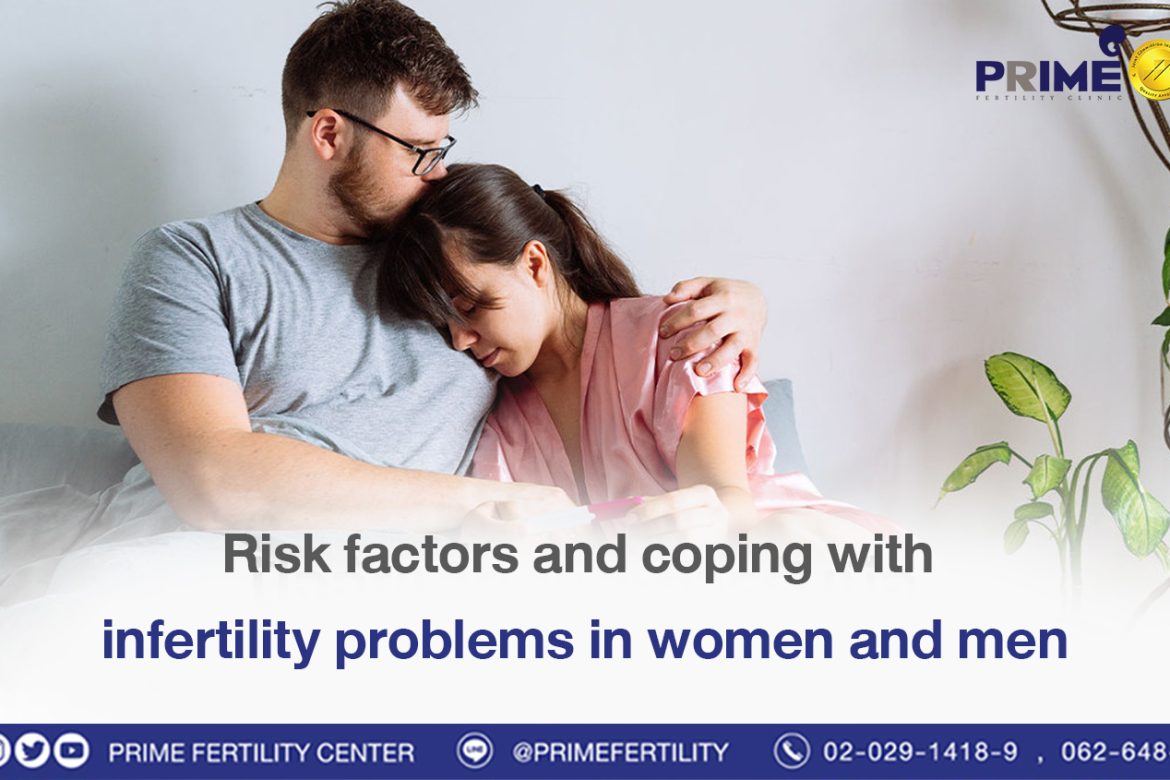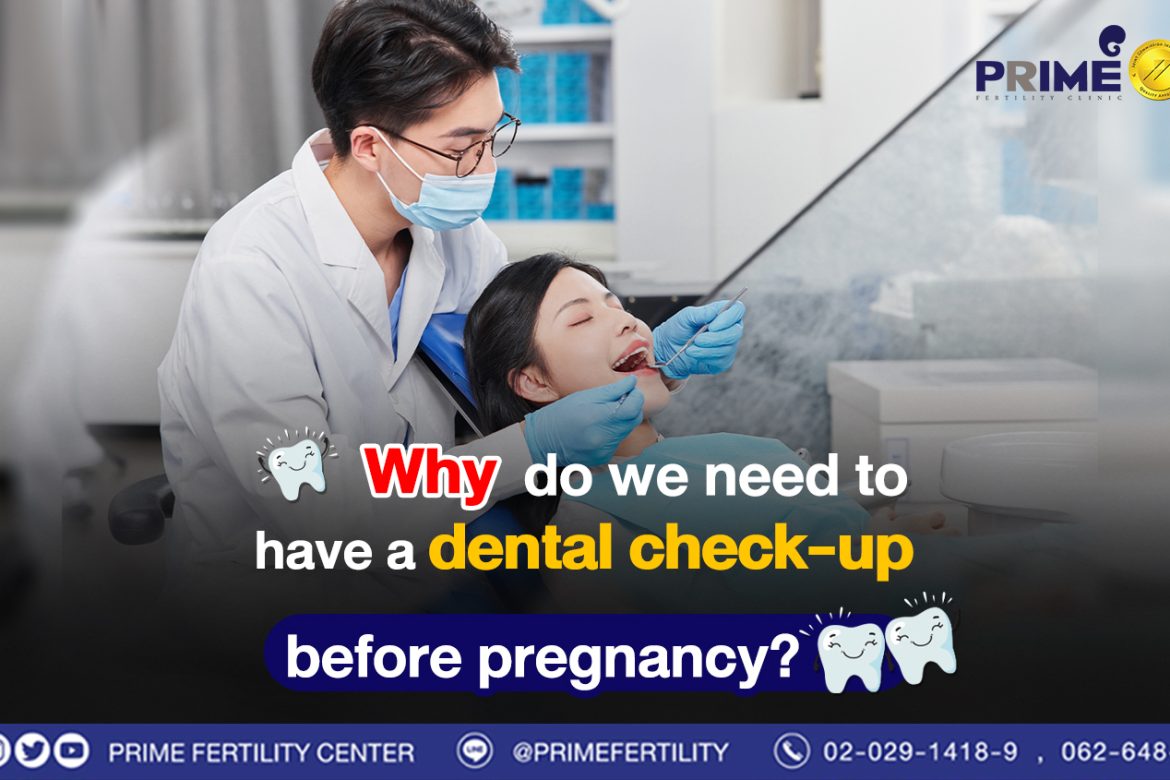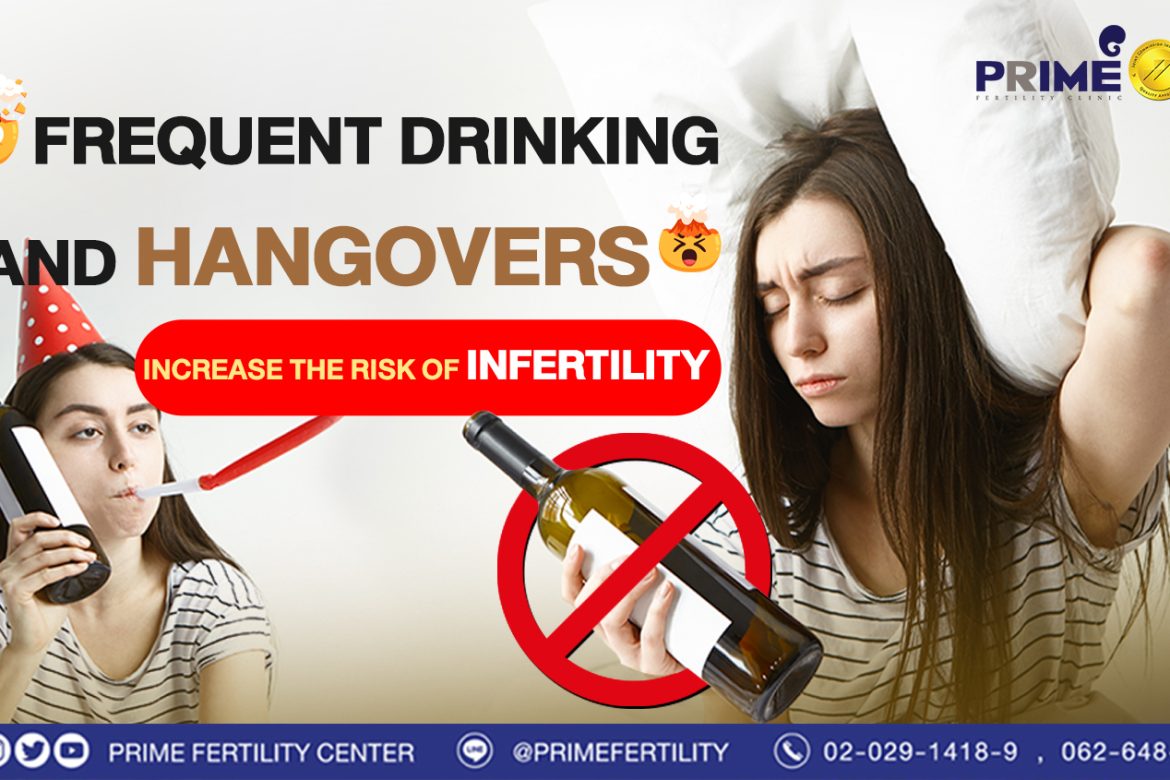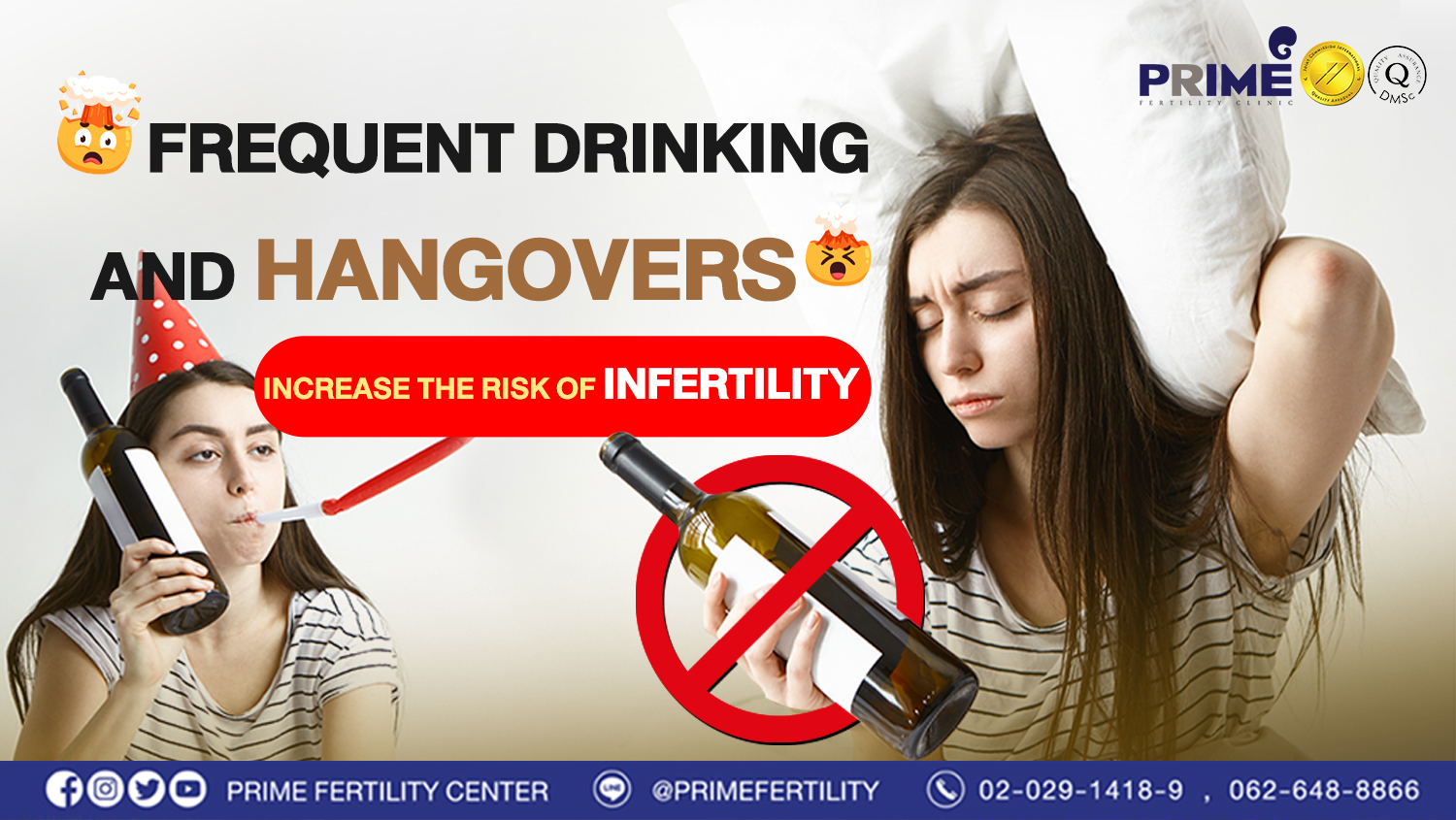Revealing risk factors and ways to deal with infertility problems for both women and men
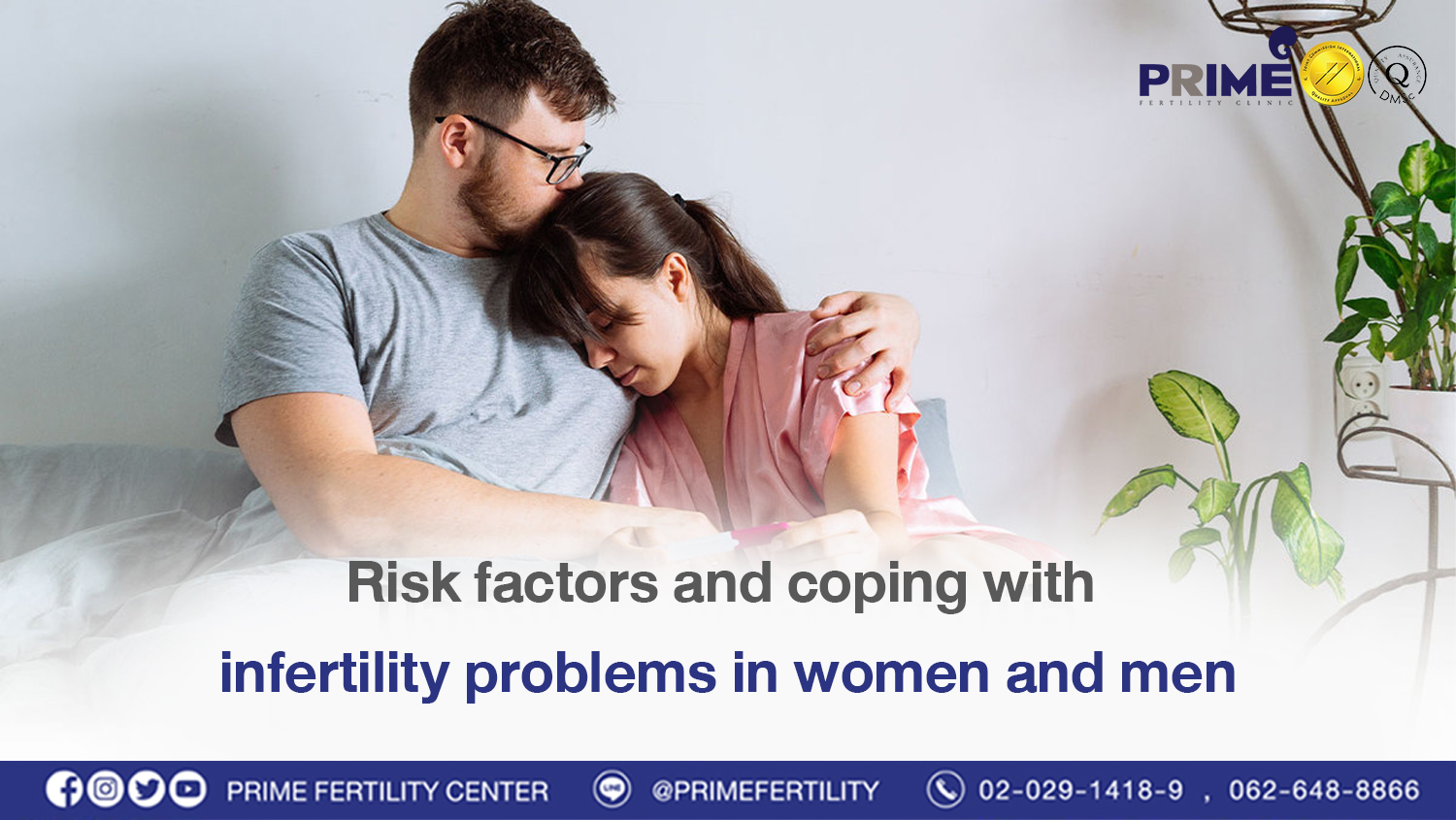
To complete the word family, it is inevitable to have a child as a bond of love. Many married couples want to have children and have tried very hard but have not succeeded until they suspect that one or another person may be suffering from infertility. Because infertility can be caused by both men and women. If you realize that your couple are the one of such couple. You must study the risk factors and how to properly deal with the problem of infertility.
First of all, infertility is considered a common situation among couples nowadays due to environmental factors, such as late marriage, wife is over 35 years old, stress, drinking alcohol, smoking, not getting enough rest. All of these causes affect sperm for men and ovarian function for women. However, in addition to the factors of infertility that have already been identified, understanding the risks associated with infertility can help create preventative measures and make dealing with such problems easier for those who want to have children.
Risk factors that often cause infertility in women
- Problems with ovulation (Ovulation Factor)
It is considered a main risk factor which is often found in women with infertility, averaging as high as 25%. In some cases, it can be called abnormal ovulation or anovulation. It is also caused by the lack of natural ovulation. As a result, there are often irregular or missed periods. The most common sign of this condition is a menstrual cycle of less than 21 days or more than 36 days.
- Problems with abnormalities of the fallopian tubes (Tubal Factor)
The fallopian tube is the area where the male sperm travels to fertilize with the female egg. Therefore, in cases where the tube is abnormal, especially the fallopian tubes are narrowed, it will prevent the sperm from reaching the egg. Or even if there is fertilization, the embryo cannot implant itself in the uterus. The risk of developing an ectopic pregnancy is even higher. In addition to narrowing, there may also be other symptoms related to the fallopian tubes that cause women to have infertility, such as having had pelvic surgery, tubal inflammation or stenosis, endometriosis, blocked fallopian tubes due to female sterilization, etc.
- Uterine abnormalities
Women who have difficulty having children, another risk factor often comes from problems with the uterus, such as submucous myoma and endometrial polyp, intrauterine adhesion, etc. If the infertility is caused by these problems, the surgery will be needed to increase the chances of having children as expected.
- Premature menopause
Women usually begin menopause between the age of 45 to 50, which means they are about to go through menopause. But some people may experience premature menopause or called, “early menopause”. Resulting in infertility problems no matter how much you want to have children. This is because the ovaries and uterus are not functioning properly. The follicles inside the ovary decompose quickly. The ovum inside the follicle can’t produce hormones, etc.
Risk factors that often cause infertility in men
In addition to the causes that come from women, many men actually have problems that lead to risk factors that cause infertility as well. The common causes can be specified as follows.
- Problems caused by sperm. Both the absence of sperm in the semen and low sperm count
- Genital or reproductive system infections such as gonorrhea, herpes, syphilis, prostatitis problems, etc., which such risk factors often result in the area of the sperm passage is narrow and constricted. The sperm production is more difficult.
- Varicocele affects sperm motility.
- Low sex hormones, hypogonadism, causes abnormal testicular function.
- Lack of certain nutrients in the body, such as Folic Acid or Lycopene, which results in poor sperm quality.
- Congenital disease or disease in the body that affects infertility, such as liver disease, kidney disease, cancer that requires radiation therapy.
- Sexual health problems such as erectile dysfunction, premature ejaculation.
- Other lifestyle or behavioral factors, such as narcotic use, exposure to too much lead
In terms of dealing with it, whenever you really want to have a child but it doesn’t work even though you have already tried natural method. It’s recommended to consult a specialized doctor to find out the cause by history taking and getting physical examination. Then choose the right solution for infertility problems. Any couples who are facing this problem, “Prime Fertility Center” a clinic specialized in infertility treatment. Treated by fertility specialist, trusted by many customers. We are providing several treatments, including egg freezing, ICSI, IUI, IVF. The clinic is certified by international standards such as JCI (Joint Commission International) of United States and ISO 15189 and ISO 15190 standards.
Should you be interested in getting fertility consultation, please contact us. | ICSI Bangkok | ICSI Thailand | fertility clinic bangkok
Tel. : 062-648-6688 / 062-648-8866 / 02-029-1418–9
Line : @primefertility
Facebook : Prime Fertility Center
E-mail : info@primefertilitycenter.com

